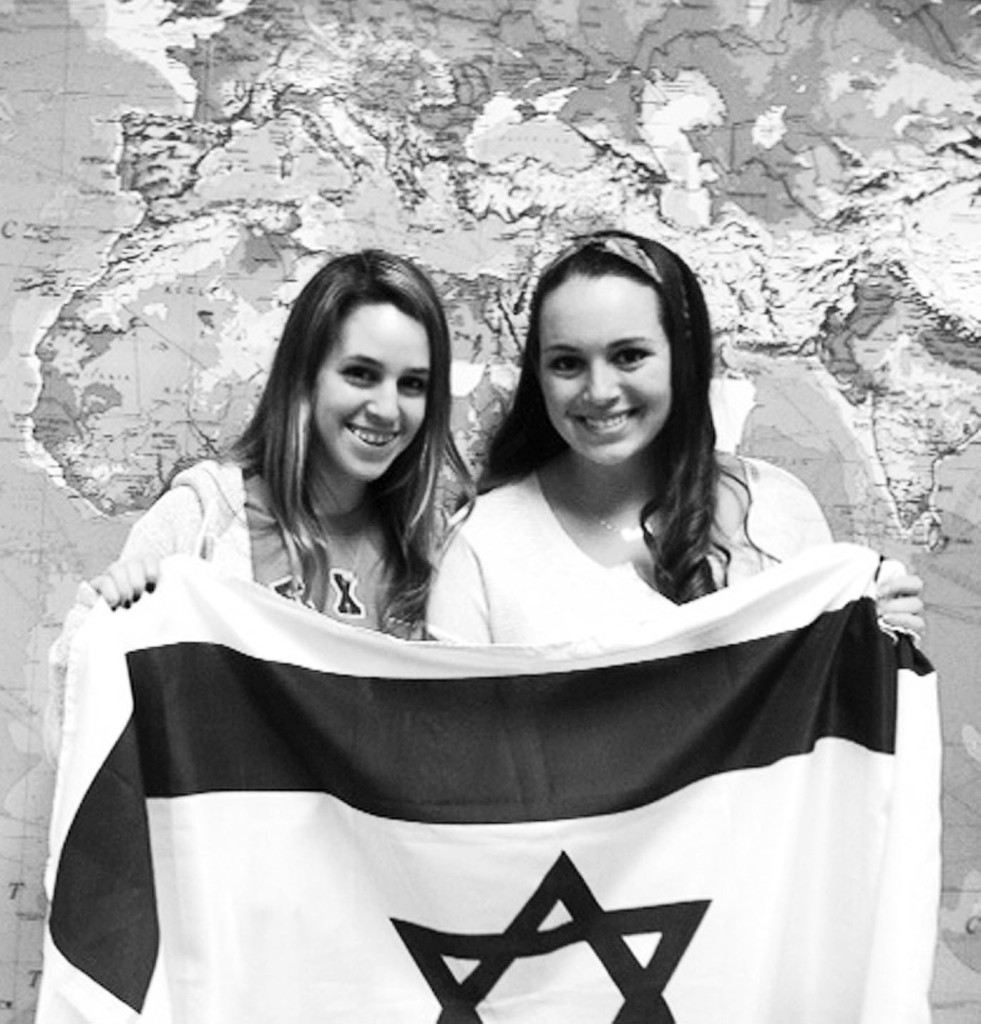
Seniors Dani Shwachman and Mallory Lustbader landed in a town full of mud, tents and donkeys. As they stepped off the plane, they were prepared with bubbles and stickers.
On Feb. 8, they had arrived with their mothers in Ethiopia as a part of a program called Operation Last Aliyah. This 10 day program had 13 volunteers who helped move eligible Ethiopian Jews to Israel.
Shwachman said that in order for Ethiopians to move to Israel, they need to have an Jewish Ethiopian family member living in Israel who can apply to the government to have his or her relatives immigrate. The relatives in Israel need to prove to the Israeli government that the family members in Ethiopia are actually Jewish. Once confirmed, the Ethiopians fly to Israel at no charge, become citizens immediately and are financially supported by their new country until they are ready to live independently.
“For many years, Ethiopian Jews were living in a very remote part of the country of Ethiopia,” said Shwachman’s mother, Kim Shwachman. “Treated very much like second class citizens, they weren’t allowed to own land. Many of these peoples’ life dreams were to make it to Israel.”
The first day, the group toured through parts of Ethiopia.
“People still walked miles for their water,” said Kim Shwachman. “They still walked miles to trees that they were going to cut down [in order to use the] branches for firewood. There wasn’t any such thing as going to a store to get your water. It [was] literally walking to the river with these pails where these women [carried] fifty pounds of water on their head and they [walked] two to three miles every day to get water. It’s like nothing we’ve ever seen.”
They also witnessed huts housing families with six kids, two beds and no electricity.
Dani Shwachman said there were no mattresses or box springs. Instead, the beds were wooden boxes that fit three people and had a fabric blanket to cover the box and a second blanket to cover peoples’ bodies.
Lustbader said that she will never forget the little kids that wore nothing but rags, yet were still so “smiley.”
The Ethiopians were learning Hebrew, but their native language is Amharic. Translators were available for the volunteers, but the group found alternative methods to communicate.
Kim Shwachman said that they brought things that were “universal” in communication such as bubbles and stickers. They had a Polaroid camera so the kids could have the pictures right away and keep them forever.
“I could barely speak Hebrew, so I played with the kids and I always had stickers with me so we kind of communicated through them,” said Dani Shwachman. “They pointed to the ones they wanted and I’d put them on their face.”
Among the people that Dani Shwachman met was a boy who prompted her with a question.
“There was this one boy, on the first day [in Ethiopia], who came up to me and spoke perfect English, which was weird because nobody spoke English there,” said Dani Shwachman. “And he said, ‘Why are you only helping the Jewish people, why can’t you help us too?’ And I didn’t know what to say.”
She talked to some of the trip leaders and was eventually informed that there were people to help non-Jewish Ethiopian citizens, apart from this program.
Moved by what the boy asked, Dani Shwachman said she would “love to do other trips like this, maybe just go back to Ethiopia and help other people who aren’t Jewish.”
After four days of being in Ethiopia, the group took the families aboard the plane to Israel. Lustbader said that the Ethiopians were “crazed” by the airplane, the seats and the captain speaking.
“They announced an hour before we were landing that the plane was going to land,” said Mallory Lustbader’s mother, Lauren Lustbader. “And I saw them tighten their seat belts and hold on really tight, and I felt so bad because they were ready to land, and they had a whole hour.”
On the flight, Kim Shwachman accompanied an Ethiopian man in his late 60s. He had just learned only a few weeks earlier that he would finally be able to go to Israel.
“I could see the fear on his face,” said Kim Shwachman. “He was leaving everything he knew, … that he had never seen an airplane before, and the roar of the airplane engines and feeling the plane become airborne was overwhelming to him. But the fear was overshadowed by the excitement of knowing that in a few hours he was going to land in Israel. … We saw the tremendous joy that when we touched down and [the pilot] said in [the Ethiopian] native language, ‘Welcome home, welcome to Israel’, these people just erupted.”
Lauren Lustbader said many of the Ethiopians had never seen elevators, beautiful floors or beds, and they still set up their mattresses on the floors because that is what they were accustomed to.
“When we were in the absorption center we met this family that moved there a week ago and the mom was talking about how she knew she wanted to move because she wanted an education for herself, her family and for her kids,” said Kim Shwachman. “It was just so moving.”
According to her, this experience taught them to see beyond the boundaries of Northbrook.
Mallory Lustbader encourages other students to try new experiences as well.
“I just think people need to start doing things they’re not comfortable with,” said Mallory Lustbader. “It wasn’t the most comfortable thing. We didn’t sleep in the most comfortable places. I think that people definitely should reach out of their comfort zones and do things they’re afraid to do.”

